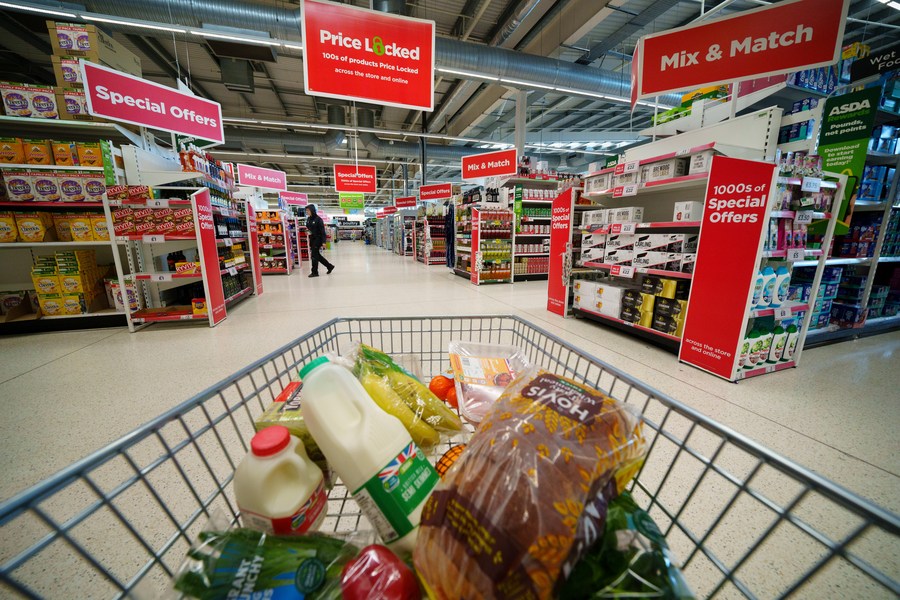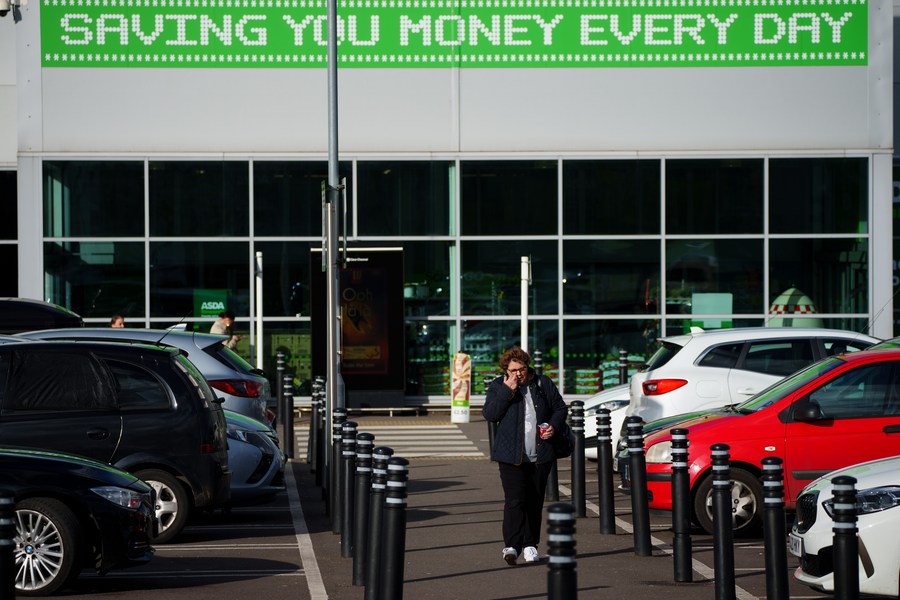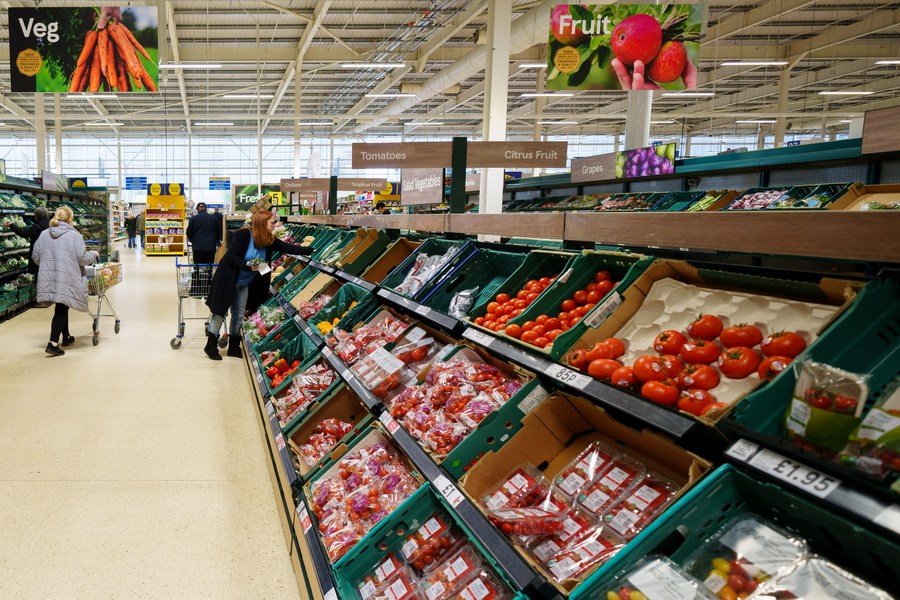
A shopping trolley is seen at a supermarket in Manchester, Britain, March 22, 2023. (Photo by Jon Super/Xinhua)
Retail sales volumes grew by 1.2 percent in February, the largest monthly increase since October 2022, and sales volumes have returned to pre-COVID-19 levels in February 2020, the Office for National Statistics (ONS) said.
LONDON, March 24 (Xinhua) -- Consumer data released here on Friday showed a further rebound in retail sales and confidence in the United Kingdom (UK) economy, but the overall picture remains gloomy as high inflation continues to bite.
Retail sales volumes grew by 1.2 percent in February, the largest monthly increase since October 2022, and sales volumes have returned to pre-COVID-19 levels in February 2020, the Office for National Statistics (ONS) said.
Non-food stores sales volumes rose by 2.4 percent month-on-month in February because of strong sales in discount department stores. Food store sales volumes rose by 0.9 percent with some anecdotal evidence of reduced spending in restaurants and on takeaways because of cost-of-living pressures.
However, "the broader picture remains more subdued with retail sales showing little real growth, particularly over the last 18 months with price rises hitting consumer spending power," ONS Director of Economic Statistics Darren Morgan said.

A customer walks out of a supermarket in Manchester, Britain, March 22, 2023. (Photo by Jon Super/Xinhua)
Though consumer data imply that the recent resilience in activity is still holding up, there are some reasons why it may not continue for too much longer, UK economist Ashley Webb at Capital Economics consultancy noted.
First, when British households' finances are under pressure, it is possible that any improvement in retail sales will just be met by a softening in non-retail spending, such as restaurants, Webb said.
Plus, although the worst of the falls in real household incomes has gone, the full drag on activity from higher interest rates has yet to be felt, he added.
Also on Friday, a survey conducted by the market research company GfK showed that the UK consumer confidence index increased by two points in March to minus 36. The small improvement masks continuing concerns among consumers about their personal financial situation, GfK Client Strategy Director Joe Staton said.
Forecasts that headline inflation will fall this year have proved premature, and wages are not keeping up with rising prices and the cost-of-living crisis remains a stark reality for most, Staton added. "Just having enough money to live right and pay the bills remains the number one concern for consumers across the UK."

Shoppers visit a supermarket in Manchester, Britain, March 22, 2023. (Photo by Jon Super/Xinhua)
The UK's consumer price index (CPI) unexpectedly rose to 10.4 percent in the 12 months to February from 10.1 percent in January.
"These inflation figures smell a little like the recent U.S. experience, where it appeared that core inflation was easing rapidly a few months ago only for it to accelerate again as economic activity proved resilient," chief UK economist Paul Dales at Capital Economics said.
The Bank of England said on Thursday that the extent to which domestic inflationary pressures ease will depend on the evolution of the economy, including the impact of the significant increases in bank rate so far. The bank also noted the recent large and volatile moves in global financial markets, saying that "uncertainties around the financial and economic outlook have risen."■












